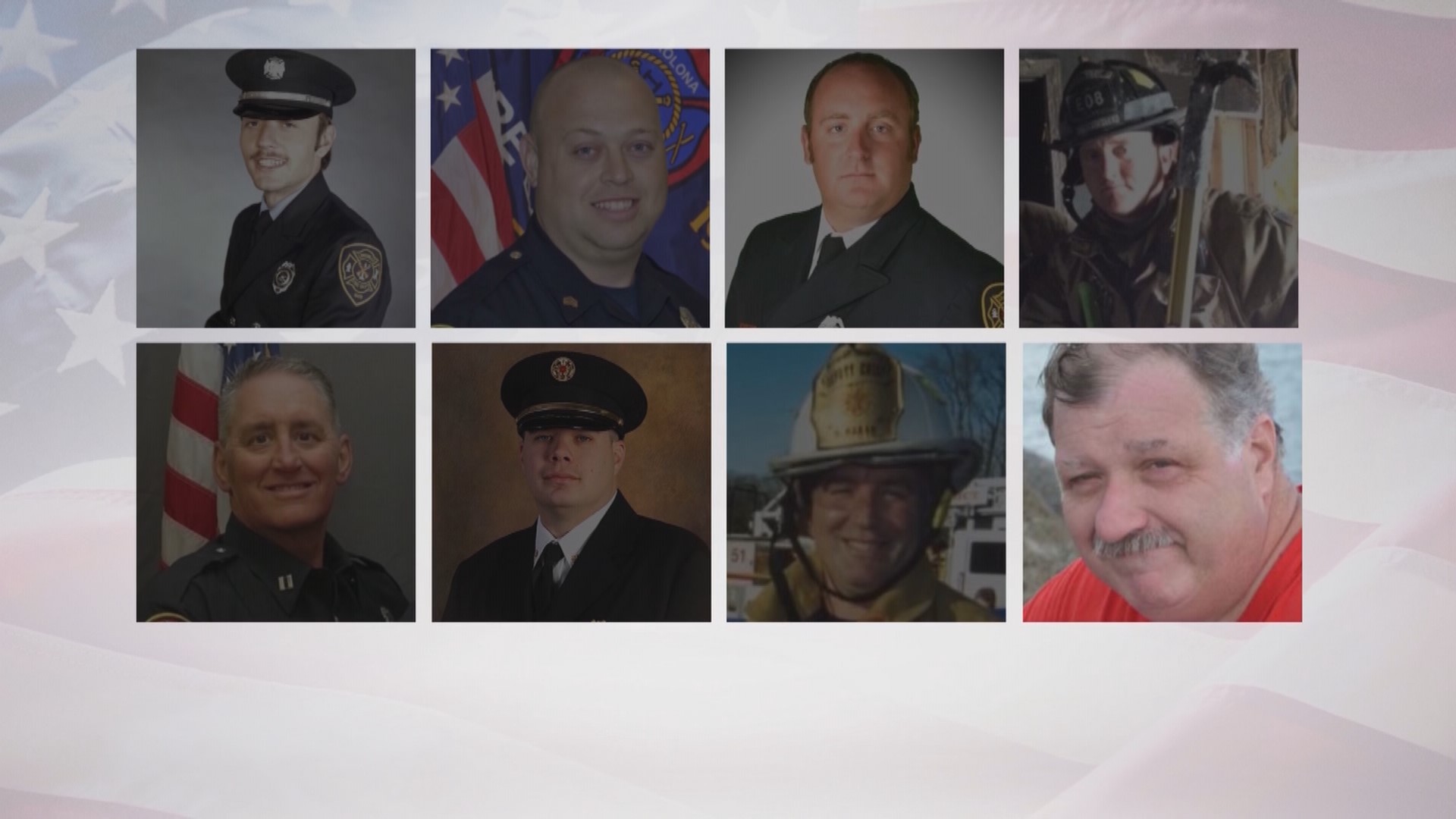LOUISVILLE (WHAS11) -- It's a threat to firefighters spreading like wildfire, a battle many are fighting years after the job ends.
Cancer is the leading cause of death in firefighters across the country, above heart attacks and other fire-related deaths. It's hit Jefferson County especially hard in the last few years.
Captain Charlie Riggle served as a firefighter with Buechel for 32 years. He taught countless firefighters and paramedics how to do the job and risked his life to save others and like so many of his comrades, he thought the threat was over, when the fire was out.

"He was going to beat it. That's what he kept saying," Terri Riggle, his wife said.
Riggle was diagnosed with colon cancer last Spring.
"We found out in May and he was gone in October," Riggle said.
"It was a shock to everyone," Morgan Riggle, his daughter said.
It's been a year since he died, joining a growing list of firefighters across the country who've lost their own battles to cancer. Recent studies have found our country's bravest are nine percent more likely to get cancer compared to the general population and 14 percent more likely to die from it. But why?
"Just now are we getting to the point of understanding we're walking into a completely toxic environment. Everything we touch, our gear itself becomes toxic," Dr. James Cripps, a former career and volunteer firefighter with Highview said.
"The discussion on firefighters and cancer didn't start until after 9/11," Cripps said, speaking on the numbers of firefighters at Ground Zero who developed cancer years later. "The question was, is this higher than the average or normal and the problem is, I don't think we had a normal established."
Cripps travels across the state of Kentucky educating fire departments on the danger few on the job really knew much about until the last few years.
"It went from not really on our radar, to, it's in your face and you can't get away," Megan Conlen, Riggle's oldest daughter said.
In the last three years, 8 firefighters from Jefferson County died of cancer; 6 are considered line of duty deaths, due to the type of cancer they had. Kentucky recognizes 12 cancers as fire-related:
1. Bladder cancer
2. Brain cancer
3. Colon cancer
4. Non-Hodgkin's lymphoma
5. Kidney cancer
6. Liver cancer
7. Lymphatic or haematopoietic cancer
8. Prostate cancer
9. Testicular cancer
10. Skin cancer
11. Cervical cancer
12. Breast cancer
"Prostate cancer is the highest among firefighters between 30 and 49 years of age," Dr. Cripps said.
It's a startling statistic for an age group not screened for cancer.
It's impossible to know just how many firefighters have fallen to cancer because until now, many states haven't kept a registry, and once a firefighter retires, it's even harder to track. That's expected to change with new legislation passed just this year requiring the Centers for Disease Control (CDC) keep count.
However, the most recent research revealed 61 percent of line-of-duty deaths from 2002 to 2016 were cancer-related. That's more than 1,000 firefighters, a number we know is only a fraction of the real total.
"The biggest hope I have is no one else dies of this cancer," Terri Riggle said.
For the Riggle Family, Charlie's death was an unimaginable loss, but one they hope offers a lesson to current and future firefighters following in his footsteps.
►Contact reporter Brooke Hasch at bhasch@whas11.com. Follow her on Twitter (@WHAS11Hasch) and Facebook.


